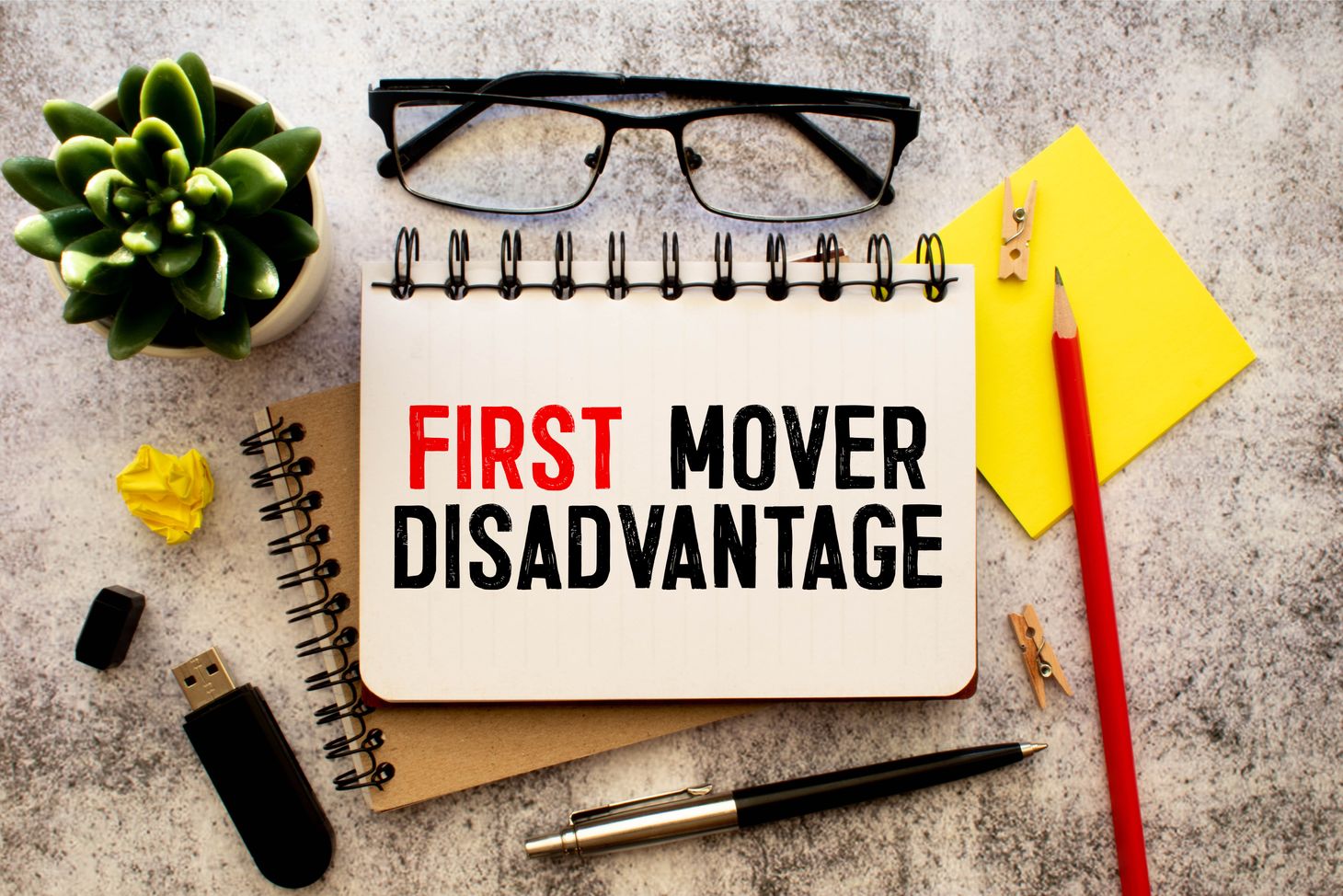The First Mover Myth: Why Being an Improver is Actually Better
Do you ever wonder why some companies are wildly successful while others quickly fizzle? The answer lies in the power of being an improver—not a first mover. History has repeatedly proven that entering later with a superior offering is often better.

There’s a commonly held belief that being a first mover is the key to success in innovation. While it’s true that pioneering a new product or service can garner interest and excitement, statistics show it doesn’t lead to success. The alternative is to be the improver who takes the best of what early movers have already created and significantly improves upon it. While “first movers” have a 47% failure rate, “improvers” have only an 8% failure rate. So, why aren’t more innovators and entrepreneurs focused on playing the “improver” role?
What is the First Mover Myth?
The First-Mover Myth is the belief that there is an advantage to being the first company to market a new product or service. This myth is based on the assumption that a company that gets there first will corner the market and dominate its competitors. However, history has shown that being a first mover rarely leads to success. Many first movers have failed despite having an initial head start. Despite the odds, a few star companies that succeeded as first-movers gave false credit to the myth that has been repeated by the media, venture capitalists, MBA programs, and entrepreneurs.
Why do first movers have a high failure rate?
First movers have a high failure rate because they have to bear all the costs of bringing a new product to the market. These costs include research and development, testing, marketing, and more. Meanwhile, competitors can sit back and learn from the first mover's successes and mistakes before releasing their version, which will be better.
A significant contributor to their high failure rate is that they often cannot accurately anticipate customer needs since they are creating a new product category. They may assume customers want features that aren't useful or overlook essential components of the product. First movers most likely lack the resources and capital to support iterating their product to close the customer need gap.
What is an Improver?
An improver is a competitor that enters a market after the first movers with better quality, cost, and functionality based on the first mover's experience. Improvers can take advantage of the lessons learned by early movers and often offer significant improvements or differentiators to existing offerings.
Examples of First Mover Failures:
Some of the biggest failures from being a first mover include AOL, Betamax, Google Wave, and Apple’s Lisa computer. These companies were the first mover in their respective markets but failed because of high costs or lack of customer acceptance. Each bore the full cost of creating a new product category based on an idea that had never been tested in the market. In contrast, the improvers in each category — Yahoo, VHS, Gmail, and Apple’s Macintosh computer — saw success by capitalizing on lessons learned from the first movers and providing better value to customers.
Examples of Successful Improvers:
Some of the most successful companies in the world are improvers, including Google, Facebook, and Apple. Google search improved existing search engines, while Facebook improved on the social networking sites that preceded it. Apple’s iPhone was not the first smartphone on the market. Still, it quickly became the best, thanks to its combination of superior hardware, user-friendly interface, and easy-to-use app ecosystem.
Why are so many still focused on the First Mover Myth?
Many entrepreneurs still believe in the First Mover Myth because they are drawn to the idea of being the first to bring something new to the world. Innovators want to be remembered for creating something that many will use. It is understandable why being a first-mover is so attractive — being the first has a certain glamour. However, it is important to heed the lessons of history, and not the myth, and realize that being an improver is a better path to success.
Isn't Being An Improver Unethical?
No, being an improver is not unethical. It would be unethical if an improver stole trade secrets or violated patents to create a competitive product, but this is not the same as improving on a product or service. Improvers should focus on improving within the bounds of acceptable competition and creativity.
An improver takes advantage of the lessons learned by the first mover to offer a better version of the product or service. Not create a duplicate of the product using stolen intellectual property. The improver's success relies on its ability to innovate and create a better product or service, offering customers more value. Hence, it is ethical for an improver to capitalize on the lessons learned by the first movers to create a better version of the original idea.
Conclusion
Many entrepreneurs believe they must be the first to market their new idea to be successful. However, statistics prove otherwise. First movers have a high failure rate, while improvers and late entrants have a much better chance of succeeding. By entering a market later with a superior product, businesses can use the lessons learned by the first movers to their advantage. It's time for entrepreneurs to leave the First Mover Myth behind and start focusing on becoming the next great improver instead.




